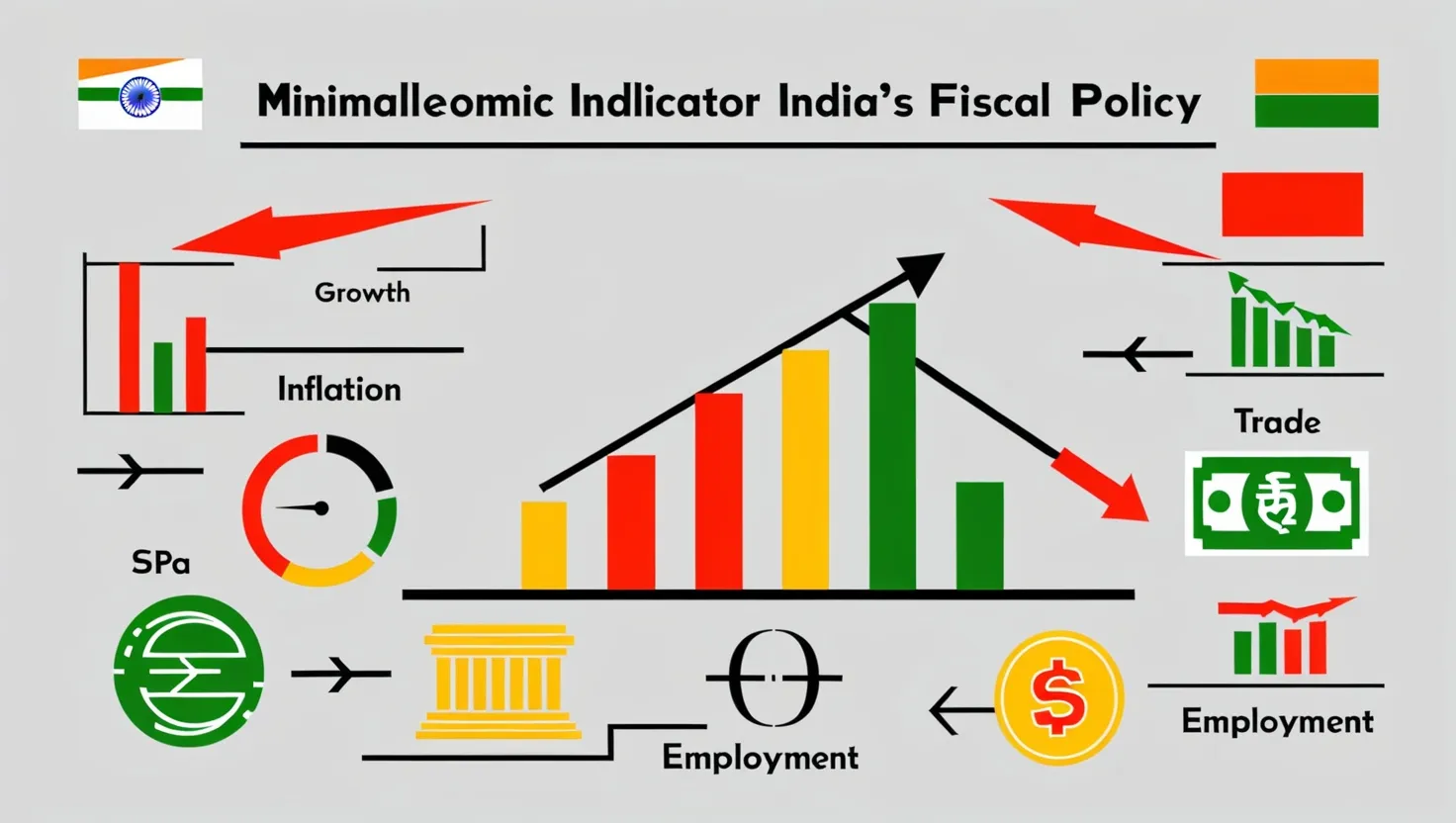Electoral bonds represent a financial instrument introduced by the Government of India with the aim of providing a transparent mechanism for political donations. Unlike traditional methods of political funding like cash, which often lack transparency and are susceptible to the influence of black money, electoral bonds were conceived to ensure that donations to political parties are made through a formal banking channel, thus adding a layer of accountability and legality to the process.
Introduced in the Union Budget of 2017-18 by the then Finance Minister Arun Jaitley, electoral bonds sought to address longstanding concerns regarding the opaque nature of political donations in India. These bonds can be purchased by any individual or corporation from designated branches of the State Bank of India (SBI) and can then be donated to a political party of the donor's choice. The identity of the donor is kept anonymous, intended to encourage donations while protecting donors' privacy.
How does it work?
Electoral bonds work as a financial instrument for funding political parties in India, designed to ensure greater transparency in political donations while protecting donor anonymity. The system attempts to strike a balance between making political funding more transparent and keeping the identity of donors confidential to encourage more legitimate contributions. Here's an outline of how the electoral bond system operates:
Purchase
- Electoral bonds can be purchased by any individual, group of individuals, or corporations, including non-resident Indians, but not foreign entities.
- These bonds are available for purchase at specified branches of the State Bank of India (SBI), the designated official issuer.
- Bonds are sold in multiple denominations, such as Rs. 1,000, Rs. 10,000, Rs. 1 lakh, Rs. 10 lakh, and Rs. 1 crore, providing flexibility in donation amounts.
Validity Period
- Once purchased, electoral bonds are valid for a limited period, typically 15 days, within which they must be donated to a political party of the donor's choice.
Donation to Political Parties
- Only political parties registered under Section 29A of the Representation of the People Act, 1951, and which secured at least 1% of the votes in the last Lok Sabha or State Legislative Assembly election, are eligible to receive donations through electoral bonds.
- Eligible political parties must have a verified account in a designated bank (authorized by the Election Commission of India) where the electoral bonds can be deposited.
Redemption
- Once a political party receives an electoral bond, it can redeem the bond through its designated bank account. The bank credits the amount to the party's account, ensuring the funds are received in a traceable, banked manner.
- The entire transaction is digital, leaving an audit trail, yet the identity of the donor is not disclosed to the recipient political party.
Anonymity and Disclosure
- The identity of the donor is kept anonymous from the public and the recipient political parties. However, the purchasing bank (SBI) keeps a record of the purchasers of electoral bonds, which theoretically could be accessed by regulatory or law enforcement agencies under specific conditions.
- Political parties are required to disclose the amount received through electoral bonds to the Election Commission of India, providing a level of transparency about the overall financial contributions they receive, albeit without disclosing the identities of individual donors.
Why Electoral Bonds:
The need for electoral bonds in India stems from the longstanding issue of transparency and accountability in political funding. Traditionally, political parties have received donations through various means, many of which lacked a clear audit trail, thereby increasing the risk of corruption and the influence of undisclosed money in politics. Electoral bonds were introduced as a mechanism to address these concerns by ensuring that donations are made through a formal, traceable banking channel, thereby reducing the reliance on cash donations and the circulation of black money in the political system.
Curbing Black Money in Political Funding
Before the introduction of electoral bonds, imagine a scenario where a large corporation wants to donate to a political party to support its election campaign. In the absence of a transparent funding mechanism, this corporation might choose to donate a significant sum of money in cash. This cash donation, being untraceable, could stem from undeclared sources, effectively becoming "black money" — funds not accounted for in the formal economy and not taxed.
This lack of transparency not only raises ethical concerns but also undermines the democratic process, as the public remains unaware of the financial backers influencing political parties and policies. Furthermore, cash donations make it difficult to ascertain whether political favors or policy decisions are being made in exchange for financial support, leading to potential conflicts of interest and corruption.
Electoral bonds were designed to mitigate these issues by providing a clean, accountable way for donors to support political parties. For instance, using the same example, if the corporation buys electoral bonds from an authorized bank (like the State Bank of India) using a transparent banking transaction, the funds can be traced back to the corporation, ensuring accountability. The political party receiving the donation redeems the bond through the same banking channel, which adds a layer of transparency to the process. While the identities of the donors are kept confidential to protect them from potential backlash or pressure, the transaction itself is recorded and processed through formal banking mechanisms, reducing the risk of black money entering the political system.
In this way, electoral bonds aim to strike a balance between donor anonymity and the need for transparency in political funding, thereby contributing to a cleaner, more transparent democratic process in India.
But Why do Corporations donate?
Corporations may choose to donate to political parties for a variety of reasons, reflecting a mix of strategic, ethical, and civic motivations. These donations are part of a broader engagement between the private sector and the political ecosystem, where businesses seek to influence, participate in, or support the policy-making process that could affect their operations, profitability, and strategic goals. Here are some key reasons why corporations donate to political parties:
Policy Influence
Corporations often have specific interests in various sectors such as finance, energy, healthcare, and technology, where government regulations can significantly impact their operations. By donating to political parties, corporations hope to gain a voice or influence over policy decisions that affect their industry. This does not necessarily imply undue influence but can mean access to policymakers to present their case or support for policies that foster a favorable business environment.
Corporate Interests and Advocacy
Similar to policy influence, corporations may donate to support parties that advocate for issues aligned with their business interests. For example, a renewable energy company might support a party that champions environmental policies, while a pharmaceutical company might donate to a party that promises to streamline drug approval processes.
Corporate Citizenship and Social Responsibility
Corporations also donate as part of their corporate social responsibility (CSR) initiatives, demonstrating a commitment to the democratic process and the societies in which they operate. Supporting political parties and the electoral process can be seen as contributing to the civic infrastructure of a country.
Reputation and Brand Alignment
Aligning with political parties or causes that reflect a corporation's brand values can enhance its reputation among consumers, investors, and other stakeholders. For instance, a company that positions itself as an innovator might support parties that promote technology and education.
Predictability and Stability
Investing in political parties that promote policies leading to economic stability and predictability can be a strategic move for corporations. Stable governance and predictable regulatory environments are beneficial for long-term business planning and investment.
Access and Networking
Donations can provide opportunities for dialogue and networking with political figures and other influential stakeholders. Such interactions can be valuable for understanding emerging political and economic trends, adjusting business strategies accordingly.
Example:
Consider a solar panel manufacturer that operates in a country with high import duties on solar technology components. If a political party proposes to reduce these duties, supporting this party financially could help bring about policy changes that significantly reduce the company's operational costs and improve its market competitiveness. This strategic donation aligns with the company's business interests and its commitment to promoting renewable energy.
But Why maintain Anonymity
Corporations often seek to maintain anonymity when donating to political parties for several reasons, each tied to strategic, reputational, and operational considerations. These motivations reflect a careful balance between participating in the political process and managing the potential fallout from such engagement being made public. Here are some key reasons why corporations prefer to keep their political donations anonymous:
Avoiding Backlash from Customers or the Public
Corporations operate in a diverse marketplace where customers hold a wide range of political beliefs. Public knowledge of a company's political donations could alienate customers who oppose the supported party's ideology, potentially leading to boycotts or loss of business. Anonymity helps avoid this risk by separating corporate political engagement from its public brand identity.
Preventing Political Retribution
Companies fear retribution from political parties or leaders not supported by their donations. If a corporation's political contributions become public, there's a risk that opposing parties, upon coming to power, could enact policies harmful to the company's interests. Anonymity in donations is seen as a safeguard against such politically motivated adverse actions.
Protecting Shareholder and Stakeholder Relations
Shareholders and other stakeholders may have varying political affiliations and perspectives. Knowledge of corporate donations to specific political parties can lead to internal discord or dissatisfaction among stakeholders, affecting corporate governance and potentially leading to declines in stock value. Anonymity helps corporations avoid these internal conflicts by keeping such donations private.
Maintaining Competitive Advantage
Disclosure of political donations could provide competitors with insights into a company's strategic priorities and potential future benefits it seeks from policy changes. By keeping donations anonymous, corporations prevent competitors from gaining valuable intelligence that could be used to counteract their strategic advantages.
Reducing Legal and Ethical Complications
Companies may also seek anonymity to navigate the complex legal and ethical landscape surrounding political donations. By remaining anonymous, corporations can avoid potential legal challenges and ethical scrutiny related to their contributions, especially in industries heavily regulated or under public scrutiny.
Fostering a Neutral Corporate Image
Maintaining a politically neutral corporate image is important for companies that serve a wide array of customers or operate in multiple jurisdictions with differing political climates. Anonymity allows these companies to engage in the political process without committing to a public political stance, preserving their neutral image.
Example: Tech Corporation
Imagine a multinational tech corporation that donates to political parties advocating for digital privacy and innovation-friendly policies. Public disclosure of these donations could lead to consumer backlash in regions with strong sentiments against these policies, or it could alert competitors to the corporation's strategic interests in certain legislative changes. By keeping these donations anonymous, the corporation can support policy advocacy that aligns with its business interests while minimizing potential negative impacts on its brand and competitive positioning.
Controversies
Electoral bonds have sparked controversy and debate in India due to concerns about transparency, accountability, and the potential for undue influence in the political system. While designed to ensure anonymity to protect donors from backlash and to encourage legitimate funding of political parties, this very feature of anonymity has led to significant criticism. Here are the main points of controversy:
Anonymity and Lack of Transparency
Critics argue that the anonymity provided to donors of electoral bonds obscures the source of political funding, making it difficult for the public to identify potential quid pro quo arrangements between donors and political parties. This lack of transparency is feared to potentially allow corporations and individuals to wield undue influence over political parties and policy-making without public scrutiny.
Potential for Money Laundering
The anonymity of electoral bonds raises concerns about their potential use for money laundering. Since the identities of donors are not disclosed, there is a fear that electoral bonds could be used to funnel illicit funds into the political system under the guise of legitimate donations.
Disproportionate Benefit to Ruling Parties
Data and reports suggest that a significant majority of the funds raised through electoral bonds have gone to the ruling party or coalition. This has led to concerns that the scheme disproportionately benefits those in power, potentially skewing the political playing field in their favor.
Legal and Constitutional Challenges
The electoral bond scheme has faced legal scrutiny and challenges in the Supreme Court of India, with petitioners arguing that it violates the principles of transparency and accountability in a democratic political system and could affect the fairness of elections.
Supreme Court Ruling
On February 15, 2024, the Supreme Court of India delivered a significant verdict on the electoral bonds scheme, striking it down as unconstitutional.
The Court held that the scheme violated the right to information of citizens, impacting free speech and expression under Article 19 (1) (a) of the Constitution. The verdict emphasized that transparency in political funding cannot be achieved by granting absolute exemptions. Following this ruling, the Supreme Court directed the issuing bank, the State Bank of India (SBI), to cease issuing electoral bonds with immediate effect.
This landmark decision addresses longstanding concerns about transparency and accountability in political funding, marking a pivotal moment in the ongoing debate over electoral financing in India.
Violation of Right to Information
The Supreme Court ruled that the electoral bond scheme infringed upon the right to information of the citizens of India. By allowing donors to remain anonymous, the scheme denied citizens the opportunity to know who is funding political parties, which is crucial information for a democratic society. This lack of transparency was seen as hindering informed voting decisions and public accountability of political parties.
Quid Pro Quo and Donor Privacy
The Court expressed concerns over the potential for quid pro quo arrangements, where donors could expect favors in return for their contributions, thus corrupting the political process. The anonymity provided by the electoral bonds was seen as facilitating such transactions, as it made it difficult to trace the flow of money from specific donors to political parties. This secrecy could lead to undue influence on policy-making and governance.
Unlimited Corporate Donations
Another critical issue was the provision that allowed corporations to donate unlimited amounts of money to political parties without disclosure. The Supreme Court observed that this could lead to a disproportionate influence of wealthy corporations over politics and governance, undermining the principle of equality in a democracy. The unlimited nature of donations, coupled with anonymity, raised concerns about corporate interests overshadowing public interest and policy-making.
Potential Threat to Democratic Principles
The ruling highlighted that the scheme posed a threat to the foundational principles of democracy in India. By compromising transparency and potentially enabling undisclosed financial influence on political decisions, the electoral bond scheme was seen as undermining the fairness and integrity of the electoral process. The Court's decision underscored the importance of ensuring that political funding remains transparent and accountable to safeguard democratic values.
Summary:
The Supreme Court of India's ruling in February 2024 to declare the electoral bond scheme unconstitutional marks a pivotal moment in the country's ongoing efforts to ensure transparency and fairness in political financing.
The Court identified several critical concerns with the scheme, including violations of the right to information, the potential for quid pro quo arrangements, the risks posed by unlimited corporate donations, and the overarching threat to democratic principles. By striking down the scheme, the Court aimed to address the opaque nature of political donations facilitated by the anonymity of electoral bonds, which had been criticized for allowing undue corporate influence and potential corruption within the political system.
This landmark decision underscores the judiciary's commitment to safeguarding the integrity of India's democracy by advocating for a political funding mechanism that is transparent, accountable, and equitable.
While the electoral bond scheme was initially introduced to curb the flow of black money into politics and protect donor privacy, the Supreme Court's ruling highlights the essential need for balance between donor anonymity and the public's right to information in a healthy democracy.
The ruling thus sets a precedent for future reforms in political funding, emphasizing the importance of transparency and public scrutiny in sustaining the democratic process and ensuring that the political arena remains a level playing field for all stakeholders.





